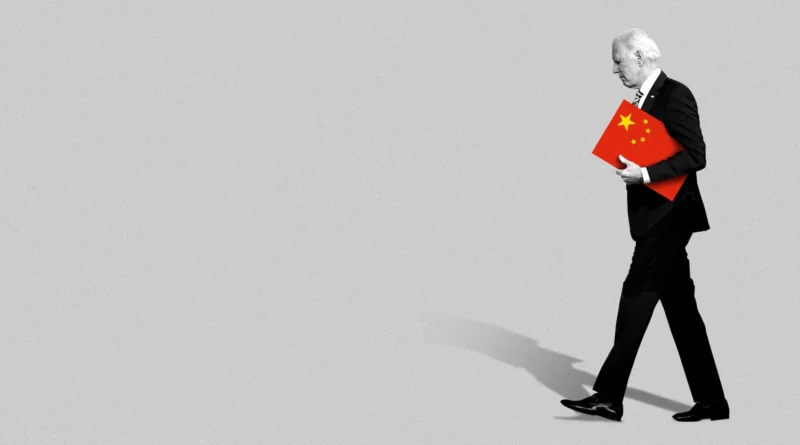Joe Biden and Chinese culture
JOHN HOPKINS
Joe Biden's recent comment that Xi Jinping is a dictator and his linking this assessment to the fact that China's system of government is different from that of the United States is revealing. It seems a manifestation of the Eurocentric thinking that has dominated the world in the last 200 years and the unwillingness to recognize cultures outside the Western sphere. This practice not only denies the validity of other people's experiences, but also the opportunities to learn and seek solutions to the problems we face.
The rejection of China as a communist dictatorship fails to take into account the thousands of years of culture and philosophy that preceded Mao's victory in 1949. Much of the philosophy emerged from the Warring States Period, when what would become the known as China emerged after a long period of turbulence during which the people of those warring states suffered enormously. Understanding that much of Chinese philosophy developed during this period allows us to understand the Chinese proclivity toward stability and security in the same way that the experience of the first European settlers who came to America fleeing religious persecution supports a historical memory that value freedom.
During the Warring States period, the various monarchs who ruled them sought the advice of philosophers to help them run their own states and confront their rivals. Although the names of the most famous of these philosophers, such as Confucius and Lao Tzu, are familiar to us, it must be noted that it was a period of extraordinary richness of thought that also encompassed notions such as Yangism (of Yang Zhu), a philosophy closer to the to Ayn Rand than to Karl Marx, or that of the philosopher Mozi (Mozism), who despised the Confucianists and professed something similar to a utilitarian philosophy.
Three of the main schools of Chinese thought are Confucianism, Taoism, and the sometimes ignored and often misrepresented school of Chinese Legalism. There is a phrase in a Taoist text that puts these three philosophies in a hierarchical order with Taoism (unsurprisingly) at the top. The phrase says that if you don't have Tao (being like water), then you should at least have De (leadership by moral example) and if you don't have either of these two at least make sure you have Fa (something like the rule of law). ). Tao would imply a good understanding and respect for the environment in which one works and the ability to be like water: be humble, find ways around immovable objects and serve people.
Confucius says that the good is like the wind and the bad is like the grass: the wind blows and the grass bends, and that rules and regulations can change people's behavior, but not their character. Chinese legalism holds a less elevated view of human nature and suggests that all people should be equal under the eyes of strictly enforced laws.
Some of China's greatest leaders have relied on several of these schools to govern the country. Emperor Wu Han Liu developed a model that combined legalistic and Confucian elements, while Emperor Tai Gong of the Tang Dynasty, arguably the greatest of all, asked his officials to be loyal to the laws and not to individuals, but He also drew on a wide range of beliefs and religions, such as Taoism, Confucianism, Islam, Syriac Christianity, Buddhism, and Judaism, to understand the world.
Simply calling Xi Jinping a dictator not only denies the existence of a rich and complex cultural heritage, but also deprives us of the opportunity to engage with ideas that can help us solve the problems of the modern world. A Taoist view of conflict, for example, would suggest that strict separation between wrongdoer and victim is not helpful. “Yin Yang thinking” suggests that there are interrelationships between these states and that conflicts cannot be resolved if we do not take into account the interrelationships of the conflicting parties.
Therefore, the only possible solution to conflicts is one that adopts a holistic view of the problems and, through it, seeks solutions. Taoism also suggests that all matters are in constant motion, so any situation, no matter how intractable it may seem, can change. As the world becomes increasingly partisan on various issues and views on those issues become increasingly Manichaean, it may be helpful for us to recognize the philosophical underpinnings of Chinese culture and even draw on some related ideas to help us solve the problems we face.









